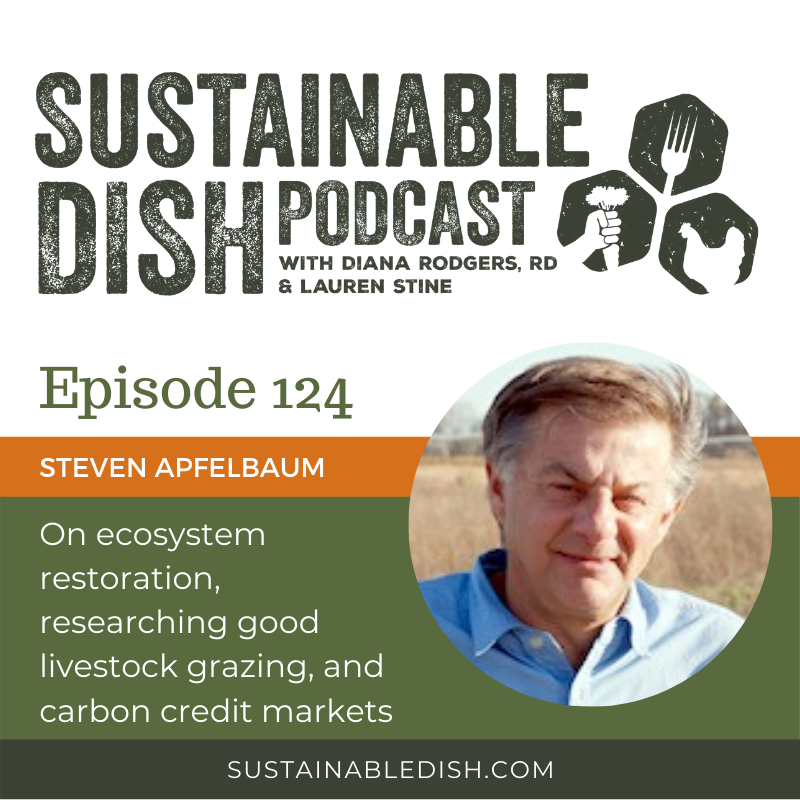Podcast (sustainable-dish-podcast): Play in new window | Download
There is a lot of talk about restoring ecosystems through agriculture to address a long list of issues like climate change, the loss of wildlife habitat, water quality, and historically low farm incomes. But what does that effort really look like? Unless you earn a degree in ecosystem sciences, most of us are only equipped with basic high school biology, giving us a limited understanding of some of these concepts.
Fortunately, a number of researchers and academics are not only hard at work to understand how we can improve our relationship with nature through farming, they’re making their work accessible to the general public as well.
In this week’s show, we hear from Steve Apfelbaum, the senior ecologist at Applied Ecological Services (AES), an ecological sciences and restoration firm in the US. His work focuses on ecosystem restoration and land management, putting back into the land what was taken from the land like healthy soil as well as plant and animal communities. AES also runs one of the largest native plant nurseries on the planet with the main location in Wisconsin called Taylor Creek Restoration Nurseries.
Apfelbaum’s work can best be understood through his book, Nature’s Second Chance: Restoring the Ecology of Stone Prairie Farm. The writing chronicles his three-decade journey to restore his eighty-acre farm in Wisconsin to a biologically diverse ecosystem of prairie, wetland, spring brook, and forest. It chronicles his family’s personal journey as well as the skepticism that they faced from the traditional agricultural community when they embarked on their journey.
Lately, he has been trying to answer big questions around how livestock can play a part in ecosystem restoration. AES is also part of the Arizona State University Soil Carbon Nation team, which is looking at how well-managed grazing can improve soil health, water quality, and carbon sequestration.
The team has been testing different grazing systems to see whether intensive grazing management can be a tool for change. So far, the research is promising and AES has gone public with a few findings. They are in the process of publishing their work, but Apfelbaum gives us a sneak peek as to what the team has discovered about the power of good grazing management.
Getting more farmers and ranchers to change their grazing practices seems promising, but adopting a new grazing system isn’t easy and can require a lot of financial and labor input. One often discussed solution to incentivizing the adoption of different grazing practices is carbon credit markets. This reinvigorated concept would pay farmers based on the amount of carbon that they are able to sequester through different agricultural practices. The credits would then be purchased by polluters through a market system.
Apfelbaum shares his view of carbon credit markets and some of the looming questions about its efficacy and reliability. Many experts question whether we understand enough about long-term carbon sequestration and raise concern about a lack of consistency in how burgeoning ag carbon credit markets are measuring carbon.
This episode is brought to you by Blue Nest Beef. There’s a lot of choices for “better” beef out there and the folks at Blue Nest Beef are grassfed pioneers who’ve perfected all the steps it takes to make better beef even better. Not only is their beef delicious, but it comes exclusively from American ranchers who have been certified by the National Audubon Society as ranchers who are regenerating our land and bird habitats. If you’re looking for better beef, visit their website here and use the discount code “2BUYBLUENEST” for 15% off your first order!








